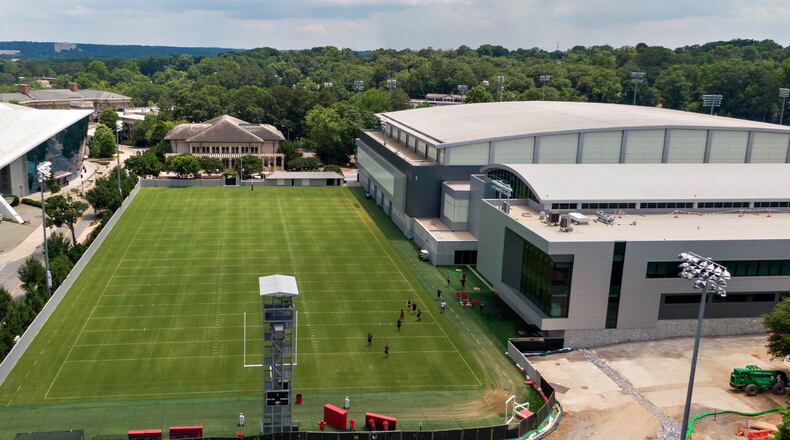ATHENS — The Georgia Bulldogs are expected to make more money next year.
The Georgia Athletic Association is projecting a revenue increase of 8% for the next fiscal year, which begins July 1. That’s according to the athletic board’s finance committee, which met via video conference call Tuesday morning to approve the budget for Fiscal Year 2023 that will be submitted for approval at next week’s full board meeting in Greensboro.
The increase should come as no surprise given Georgia’s success in football last year. The Bulldogs won the 2021 national championship Jan. 10.
“We are expecting just under an 8% increase in our revenue for 2023,” Stephanie Ransom, UGA’s deputy athletic director for business operations, told the committee. “That includes a neutral-site football game against Oregon in Atlanta. We have a small uptick in the William C. Hartman Fund due to the excitement of the football season, and the SEC distribution is expected to increase.”
Georgia and Oregon will earn as much as $5 million each to meet in the Chick-fil-A Kickoff game at Mercedes-Benz Stadium at 3:30 p.m. Sept. 3 on ABC.
The committee did not mention the specific number for the budget, which will be presented to the full board next week. But, based on the revenue-and-expense statement shared at the athletic association’s winter board meeting in February, 8% would increase the FY 2023 budget by $12 million to $162.53 million.
Ransom said the association is requesting an additional 4% from its general endowment “for strategic investments into our programs.” The Bulldogs are budgeting for an “academic achievement award” that will be provided to all student-athletes for successful progress toward a degree. UGA is also putting more resources into “mental health and performance.
Ranson added that “compensation line-items have increased.” That’s expected to include a new deal for football coach Kirby Smart. Athletic director Josh Brooks and UGA President Jere Morehead confirmed in February that the Bulldogs are in negotiations with Smart’s agent, Jimmy Sexton, for a raise and contract extension for the seventh-year head coach. He currently makes $7 million annually.
The Bulldogs also hired new coaches in track, soccer, softball and men’s and women’s basketball in the past year and offered across-the-board, cost-of-living raises for association employees.
“It’s definitely a team effort,” Brooks told the committee at the close of the meeting. “We’ve got to thank our donors for stepping up in crucial moments during COVID when they turned potential refunds into donations. That allowed us to keep operating. That’s the strength of the Bulldog Nation, and it can never be undervalued.”
Georgia certainly hasn’t slowed when it comes to spending. Later Tuesday afternoon, the Bulldogs will dedicate their new $80 million football operations addition to the Butts-Mehre complex. That project and the two others that proceeded it totaled $175 million in new construction for football. That work has been funded almost entirely by pledges and donations from about 1,500 members of the “Magill Society,” which donates money in exchange for football ticket priority.
UGA football also ranks among the top spenders in the country when it comes to staffing and recruiting budget. Operating expenses for football last year were reported as more than $36 million.
About the Author
Keep Reading
The Latest
Featured


